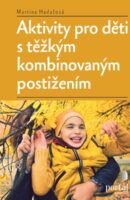This edition of ERIS Web Journal followed the call for papers focusing on ‘Migration across Europe’, in which we highlighted the contemporary political nature of this topic with a huge impact on people’s daily life conditions and prospects for themselves and their families. Hardly a day passes without a headline reporting the diverse, dangerous and often fatal attempts by refugees to enter one of the EU member states. Lampedusa, an Italian island that was previously known for its tourist industry has sadly become an instantly recognizable keyword in debates surrounding the controversial issue of “Fortress Europe”. Social work with its newly agreed and widened definition promotes “social change and development, social cohesion, and the empowerment and liberation of people.” Furthermore “Principles of social justice, human rights, collective responsibility and respect for diversities are central to social work.” (IASSW/ IFSW, 2014, Melbourne). Within this issue of EWJ we can publish articles focusing on theories and practice of social workers in the field, mainly dealing with relevant issues around asylum seekers within Europe.
The first article, Social Work as a Human Rights Profession in Theory and Practice: The Alice Salomon University Reacting to Violation of Refugees’ Human Rights in Germany, by Nivedita Prasad proclaims social work as a human rights profession and clearly outlines how the Alice Salomon University was able to establish, through a diverse range of activities, at least the beginning of a public stand on the issue of safeguarding human rights of asylum seekers in its regional neighbourhood. In the article a strong connection is drawn between theory referring to human rights paragraphs/or declarations and the practical situation found in Hellersdorf, Berlin.
The second article, Separated and/or Unaccompanied Children Placed in Care: Perspectives and Experiences of Professionals Working in Sweden, by Nair Costa provides an overview of perspectives and experiences of professionals involved with the care for separated and/or unaccompanied refugee children. First results are taken from a qualitative research study including 25 interviews and a documentary analysis with professionals.
The third article, A Restrictive Social Work, Working with Asylum-seekers in Austria, by Matthew Randall explores the professional limitations existing for social workers who provide support and advice for refugees in Austria. Particular focus is placed on the cumulative effects of, on the one hand, institutional discrimination impacting on the basic needs of the clients and, on the other, a lack of regard for minimum standards of professional practice.
The fourth article, Measuring Ethnic Attitudes of Young People: Methodological Examinations for Cross-national Research, by authors Juha Hämäläinen, Inger Kraav, Anna Bizaeva and Jari Kainulainen reflects the complex issues of a cross-national comparative study linked with the equally complex issue regarding measurement and research of ethnic attitudes, and the development of the required methodology. The article offers an insight into Estonian, Finish and Russian developments in the field of ethnic attitudes, but also an intensive focus and discussion on the difficulties and concerns within this field of research.
In addition readers can find the following book review and brief news about research activities.
BOOK REVIEW
Huber, Renate. 2013. Wie gehe ich mit Vielfalt um? Eine Handlungsanleitung nach dem Sudoku-Prinzip (How do I cope with diversity? –An approach according to the principles of Sudoku). Münster (u.a.): Waxmann Reviewed by Prof. (FH) Doris Böhler, MA.
NEWS FROM RESEARCH
Mariusz Granosik, Anita Gulczyńska, Renata Szczepanik (University of Lódź, Poland): Social climate of educational institutions and its determinants. Perspective of employees and the service users of youth care centers (MOW) and youth sociotherapy centers (MOS), Łódź, Poland.
Väisänen Raija: A Doctoral Dissertation of Social Work Approved at the University of Eastern Finland.
Prof. (FH) Doris Böhler, MA,
Issue Editor






